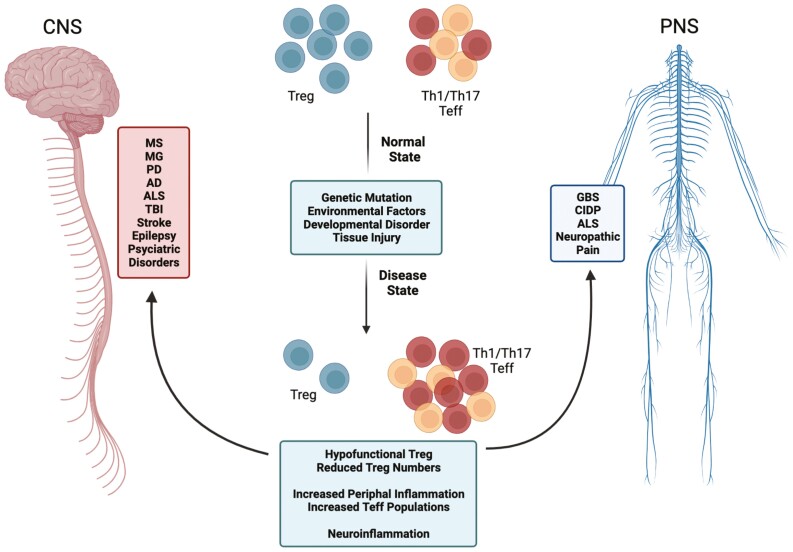Figure 2:
Adaptive immune system imbalance in nervous system pathologies. In normal, healthy environments, Treg and Th1/Th17 Teff exist in a homeostatic state. Following genetic mutation, environmental factors, developmental disorders, and/or tissue injury resulting in disease, a Treg:Teff imbalance occurs in response to a chronic and overactive pro-inflammatory immune response both the in the brain and the periphery. The immune imbalance is likely due to hypofunctional Treg that are unable to effectively migrate to and suppress the overactive immune response, a reduction in functional circulating Treg, increased levels of peripheral and neuroinflammation, and ultimately, increased proinflammatory Teff populations leading to accelerated disease progression. Nervous system pathologies affected by this imbalance include those in the central nervous system (CNS) such as multiple sclerosis (MS), myasthenia gravis (MG), Parkinson’s disease (PD), Alzheimer’s disease (AD), amyotrophic lateral sclerosis (ALS), tramautic brain injury (TBI), stroke, epilepsy, post-tramautic stress disorder (PTSD), depression, anxiety, and psychosis. Peripheral nervous system (PNS) diseases include Guillian–Barre syndrome (GBS), chronic inflammatory demyelinating polyradiculoneuropathy (CIDP), ALS, and neuropathic pain.

